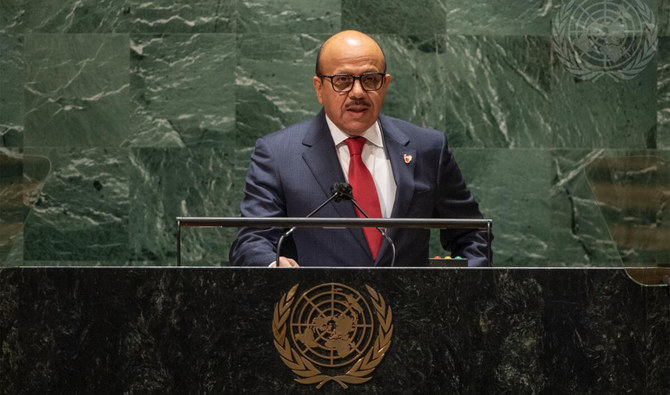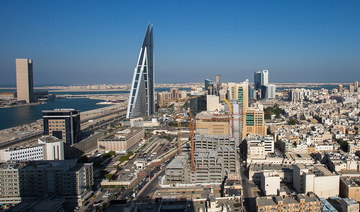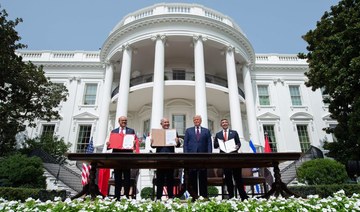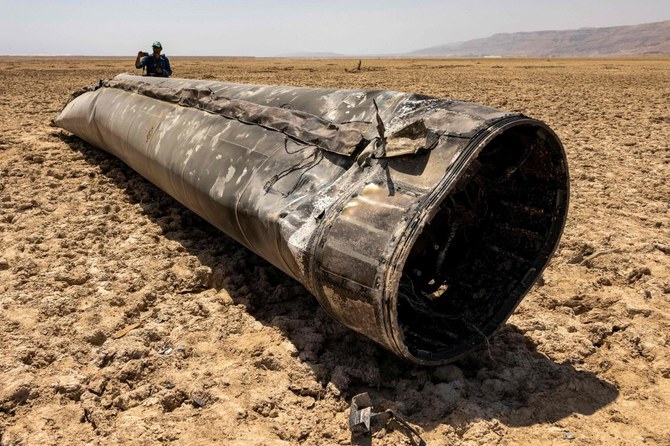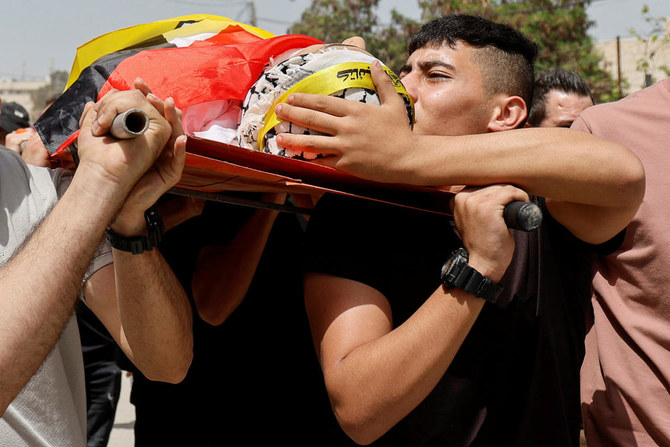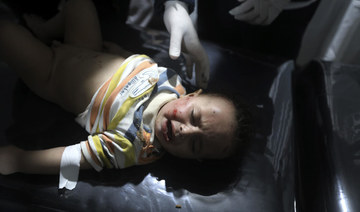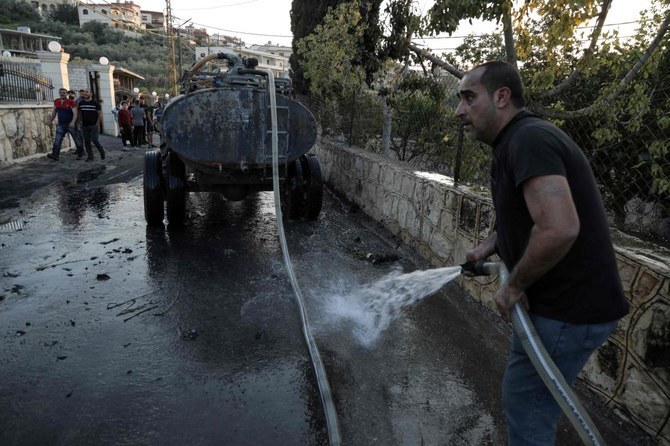NEW YORK: In an address to the 76th session of the UN General Assembly on Monday, Bahrain’s foreign minister highlighted the work of authorities in his country to combat COVID-19, along with the efforts they are making to tackle the economic effects of the pandemic. These include a $12 billion stimulus package designed to protect jobs and support business sectors affected by the health crisis.
Abdullatif Al-Zayani also expressed appreciation for the close cooperation the nation receives from the UN. In particular he described the ongoing work to enhance a partnership with the Office of the UN High Commissioner for Human Rights to help guarantee and protect human rights in the Kingdom.
In August, the Ministry of Foreign Affairs and the office of the UN resident coordinator in Bahrain signed a declaration of intent to work together to prepare a national human rights plan. Al-Zayani said it is hoped that this will serve as a comprehensive framework for the implementation of government projects designed to protect human rights.
Bahrain has “worked to advance the rights of Bahraini women and to uphold the principles of equal opportunity and equality,” he added, including efforts to ensure wage equity between men and women.
The country has also made advances in criminal justice reforms, the minister said, including a recently passed “alternative sentencing” law touted as a “qualitative leap forward” in the reform and rehabilitation of offenders.
Turning to energy policy, Al-Zayani said Bahrain shares the international community’s concerns about climate change and its drastic effects, and has developed an integrated plan to increase the share of renewable energy as part of a sustainable development strategy to reduce carbon emissions.
He also spoke about the importance Bahrain places on commitments that form part of the AlUla Declaration, an agreement reached in January that resolved a long-running dispute between Qatar and neighboring countries, and which Bahrain considers essential for closer cooperation between Gulf nations.
Bahrain is also a signatory to the Abraham Accords, the agreements last year between a number of Arab nations to normalize relations with Israel. Al-Zayani said the Bahraini government views the signing of the accords as being in line with the vision of King Hamad Al-Khalifa to promote peaceful coexistence, dialogue and mutual respect in the region and among faiths.
He added that this does not mean that Manama has forgotten about the Palestinian people, however, and that the government continues to believe in the need for a just and lasting peace in the Middle East that guarantees the right of the Palestinian people “to live in a secure, stable and prosperous nation … with East Jerusalem as its capital, in accordance with the principle of the two-state solution.”
Al-Zayani also reaffirmed Bahrain’s support for Saudi efforts to achieve a ceasefire in Yemen as part of the process to reach a political solution to the crisis in the country and end the suffering of the Yemeni people.
He said his country condemns the continuing Houthi attacks in Yemen and on Saudi Arabia, describing them as a “clear violation of international humanitarian law.
The minister also spoke of the need for an “urgent settlement” of the Renaissance Dam dispute between Sudan, Egypt and Ethiopia in a manner that preserves the water rights of Egypt and Sudan.
In Libya, Al-Zayani said the Bahraini government supports the withdrawal of all foreign forces from the country and the staging of elections that “reflect the will of the Libyan people.”
In the Western Sahara conflict between Morocco and southern separatists seeking independence, he reiterated Bahrain’s support for a political resolution that respects and preserves Morocco’s sovereignty.
Regarding Iran, Al-Zayani said the Middle East should be a region free of weapons of mass destruction and reaffirmed Bahrain’s support for international efforts to prevent Iran from acquiring the ability to develop nuclear weapons.
He urged Iranian authorities to help maintain regional stability and security by fully cooperating with International Atomic Energy Agency inspectors. The IAEA recently reported that Iran was failing to comply with UN-mandated international inspections at sensitive nuclear facilities.



